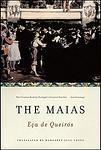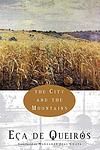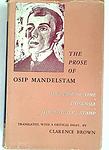The Greatest Portuguese, Multiple Books of All Time
Click to learn how this list is calculated.
This list represents a comprehensive and trusted collection of the greatest books. Developed through a specialized algorithm, it brings together 300 'best of' book lists to form a definitive guide to the world's most acclaimed books. For those interested in how these books are chosen, additional details can be found on the rankings page.
Genres
Countries
Date Range
Reading Statistics
Click the button below to see how many of these books you've read!
Download
If you're interested in downloading this list as a CSV file for use in a spreadsheet application, you can easily do so by clicking the button below. Please note that to ensure a manageable file size and faster download, the CSV will include details for only the first 500 books.
Download-
1. The Book of Disquiet by Fernando Pessoa
"The Book of Disquiet" is a posthumously published collection of thoughts and musings of a solitary dreamer, who is a Lisbon-based bookkeeper. The book delves into the mind of a man who is discontented with his mundane life and finds solace in dreaming and writing. The narrative is a profound reflection on life, solitude, and the nature of humanity, filled with philosophical insights and poetic language. The protagonist's introspective journey and his struggles with existential despair make it a seminal work in the genre of literary modernism.
-
2. The Lusiad by Luís Vaz Camões
"The Lusiad" is an epic poem that chronicles the historic voyage of Vasco da Gama, who discovered a sea route from Portugal to India in 1497-1498. The narrative is filled with both historical events and fantastical elements, including sea monsters and divine intervention. The story celebrates Portugal's maritime exploration and its heroes, while also reflecting on the human condition and the nature of life, destiny, and the cosmos.
-
3. The Year of the Death of Ricardo Reis by José Saramago
The novel is a metaphysical narrative about a doctor named Ricardo Reis who returns to Lisbon, Portugal after learning about the death of his friend. He finds himself in a society on the brink of dictatorship, and as he navigates through his daily life, he encounters his deceased friend's ghost and a hotel maid with whom he begins a love affair. The book explores themes of identity, love, and the nature of reality, set against the backdrop of political turmoil.
-
4. The Maias: Episodes from Romantic Life by Eça de Queirós
"The Maias: Episodes from Romantic Life" is a compelling narrative set in Lisbon in the late 19th century that follows the lives of a wealthy Portuguese family, the Maias. The story centers around the romantic and professional life of Carlos Maia, but also includes a rich cast of secondary characters. The plot includes themes of love, betrayal, disillusionment, and tragedy, all set against the backdrop of a rapidly changing Portuguese society. The novel is also a critique of the decadence and stagnation of Portuguese society at the time.
-
5. Blindness by José Saramago
In this dystopian novel, an unexplained epidemic of "white blindness" sweeps through an unnamed city, causing chaos and panic. The government responds by quarantining the afflicted in an abandoned mental hospital, where conditions quickly deteriorate into violence and squalor. Amid the despair, one woman mysteriously retains her sight and guides a small band of the blind, including her husband, through the harrowing ordeal. The novel explores themes of loss, human nature, and the fragility of civilization.
-
6. Baltasar and Blimunda by José Saramago
"Baltasar and Blimunda" is a historical love story set in 18th century Portugal. The narrative follows a maimed soldier, Baltasar, and a young clairvoyant woman, Blimunda, as they navigate the hardships of life during the Inquisition. Their love story is intertwined with the construction of the Convent of Mafra, a grandiose project initiated by the King. The novel explores themes of love, faith, human resilience, and the struggle against political and religious oppression.
-
7. Tractatus Theologico Politicus by Baruch de Spinoza
"Tractatus Theologico-Politicus" is a seminal work that explores the relationship between religion, politics, and philosophy. The author argues for the separation of theology and philosophy, asserting that the purpose of the state is to promote peace and security through rational governance, free from religious influence. He critiques the role of organized religion in politics and defends the freedom of thought and expression, advocating for a secular, democratic political order. The work also delves into biblical criticism, challenging traditional interpretations and suggesting that the Bible should be analyzed through a historical and contextual lens.
-
8. The Crime of Father Amaro by Eça de Queirós
Set in 19th century Portugal, this novel follows the life of a young priest, Father Amaro, who is posted in a provincial parish. Despite his religious vows, he falls in love with a beautiful girl, Amelia, who is also the daughter of his landlady. Their forbidden love affair results in Amelia's pregnancy, leading to tragic consequences. The novel vividly portrays the corruption within the Catholic Church and the hypocrisy of the society.
-
9. Despair by Vladimir Nabokov
The novel revolves around a man who encounters his doppelgänger and becomes obsessed with the striking resemblance between them. This obsession leads him to concoct an elaborate scheme involving identity exchange and insurance fraud. As the protagonist meticulously plans what he believes to be the perfect crime, his narrative becomes increasingly unreliable, revealing his descent into madness. The story unfolds through a complex structure of layered storytelling, blending reality with the protagonist's delusions, and culminates in a darkly ironic twist that challenges the reader's perception of truth and fiction.
-
10. Satyricon by Petronius
The book in question is a satirical Roman work that provides a vivid, episodic portrayal of the decadent society during the reign of Nero. It follows the misadventures of the narrator and his companions as they navigate a world of excess, corruption, and hedonism. Through a series of events ranging from banquets to shipwrecks, the narrative offers a critique of the moral decay of Roman society, using humor, irony, and the perspective of characters from various social strata. The fragmented nature of the surviving text adds to its enigmatic and chaotic depiction of the period's social mores.
-
11. Novel With Cocaine by M. Ageyev
The book in question is a psychological novel set in the tumultuous period of the Russian Revolution. It follows the life of a disaffected young man who, after being expelled from school, descends into a hedonistic lifestyle in Moscow's seedy underbelly. As he indulges in romantic pursuits and the eponymous drug, his intellectual arrogance and detachment from society grow. The narrative offers a dark and introspective exploration of nihilism, addiction, and the loss of innocence, ultimately painting a portrait of a protagonist caught between the demise of old-world Russia and the rise of the Soviet Union, all while grappling with his own moral decay.
-
12. Attis And Other Poems by Catullus
"Attis and Other Poems" is a collection of lyrical works that delve into themes of love, desire, and personal anguish. The poems are characterized by their emotional intensity and vivid imagery, often reflecting the poet's own tumultuous love affairs and inner turmoil. The titular poem, "Attis," stands out with its mythological narrative and exploration of themes such as identity and transformation. Throughout the collection, the poet's mastery of language and form is evident, as he skillfully weaves together personal experiences with broader reflections on human nature and the complexities of the human heart.
-
13. The Gospel According To Jesus Christ by José Saramago
This novel offers a provocative and humanized retelling of the life of Jesus Christ, diverging from traditional biblical narratives. It presents a Jesus who is all too human, grappling with the complexities of life, love, and a sense of destiny. Through a blend of biblical lore and imaginative fiction, the story explores themes of divinity, free will, and morality, challenging readers to reconsider the foundations of faith and the nature of storytelling itself. The narrative delves into Jesus's relationships, his encounters with figures such as God and the Devil, and ultimately portrays a deeply philosophical and introspective version of a figure central to Western civilization.
-
14. The Land At The End Of The World by António Lobo Antunes
This novel is a poignant and harrowing account of the Angolan War of Independence from the perspective of a disillusioned Portuguese medic. Through a series of barroom confessions to an unnamed interlocutor, the narrator recounts his experiences of the brutal conflict, the horrors he witnessed, and the impact it had on his psyche. The narrative is a blend of vivid war memories and reflections on the post-war life, exploring themes of love, loss, and the haunting legacy of colonialism. The author's rich, poetic language and innovative storytelling techniques create a powerful, immersive experience, capturing the futility of war and the indelible scars it leaves on individuals and nations alike.
-
15. Fado Alexandrino by António Lobo Antunes
"Fado Alexandrino" is a complex narrative that follows the lives of four Portuguese men who meet at a dinner in Lisbon to commemorate their return from the colonial war in Mozambique ten years prior. Each man, representing different social classes, recounts his life before, during, and after the war, revealing their personal struggles and the impact of the war on their lives. The novel also reflects the political and social changes in Portugal from the dictatorship era to the revolution and its aftermath.
-
16. Memories And Commentaries by Igor Stravinsky
"Memories and Commentaries" is a reflective work that offers a window into the mind of one of the 20th century's most influential composers. Through a series of personal recollections and insights, the book delves into the author's artistic journey, his relationships with other prominent figures in the world of music and art, and his philosophical musings on the nature of creativity. The narrative weaves together anecdotes from the composer's life, discussions on his own compositions and musical techniques, as well as his opinions on the works of his contemporaries, providing readers with an intimate portrait of a man whose legacy continues to shape the landscape of classical music.
-
17. The City And The Mountains by Eça de Queirós
This novel juxtaposes the bustling, superficial life of the city with the serene, authentic existence in the countryside. Through the eyes of its protagonist, who transitions from a jaded urbanite to finding solace and purpose in the rural landscapes of his homeland, the narrative explores themes of materialism, the value of simplicity, and the quest for genuine happiness. The author masterfully contrasts the decadent Parisian society with the pastoral beauty and traditional values of Portugal, critiquing the hollow pursuits of the elite and celebrating the unpretentious, vibrant life connected to nature.
-
18. Signs Of Fire by Jorge de Sena
"Signs of Fire" is a historical novel set against the backdrop of the Spanish Civil War and the onset of World War II, exploring the coming-of-age of a young Portuguese man. The protagonist, caught between the expectations of his bourgeois family and his own political awakening, grapples with the tumultuous events of the era, his personal relationships, and his burgeoning intellectual and ideological convictions. As he navigates love, friendship, and the struggle for meaning in a world on the brink of chaos, the novel delves into themes of identity, resistance, and the impact of historical forces on individual lives.
-
19. Six Studies In Communism by Arthur Koestler, Richard Crossman
This book is a compilation of six essays that delve into the ideological and practical facets of communism. Each study examines different aspects of communist theory and practice, from its origins and evolution to its implementation in various countries. The authors critically analyze the successes and failures of communist systems, exploring the impact on societies that have adopted these principles. The essays also consider the psychological and sociological effects of living under communist regimes, providing a multifaceted perspective on one of the most influential political ideologies of the 20th century.
-
20. The History of the Siege of Lisbon by José Saramago
This narrative revolves around a proofreader named Raimundo Silva, who, while working on a historical text about the Siege of Lisbon, decides to alter history by adding a single word to the text, turning the factual account into a fictional one. This act of rebellion leads him into a relationship with his boss, Maria Sara, and together they explore the consequences of questioning historical facts and narratives. The story also delves into the power of language and storytelling, and the blurred lines between history and fiction.
-
21. The Rattle Bag by Seamus Heaney, Ted Hughes
This anthology is a diverse and eclectic collection of poetry, curated with the intention of captivating readers with its variety and depth. It eschews traditional chronological or thematic organization, instead opting for an alphabetical arrangement by title, which encourages serendipitous discovery and juxtaposes poems in unexpected ways. The editors, both acclaimed poets themselves, have selected works that span centuries and continents, including both well-loved classics and lesser-known gems. The collection is designed to appeal to a wide audience, inviting readers to explore the rich landscape of poetry in a fresh and engaging manner.
-
22. The Fourth Prose by Osip Mandelshtam
"The Fourth Prose" is a collection of autobiographical sketches and essays that delve into the author's reflections on literature, culture, and his own experiences. Through a series of lyrical and philosophical musings, the work explores the nature of artistic creation, the role of the poet in society, and the oppressive political climate of the author's time. The prose pieces are marked by their rich language and imagery, as well as their deep engagement with the European literary tradition, all while offering a poignant critique of the totalitarian regime under which the author lived, ultimately serving as a testament to the enduring power of the human spirit and the written word.
-
23. The Noise Of Time by Osip Mandelshtam
The book in question is a profound reflection on the life and work of a Russian poet navigating the treacherous waters of Soviet politics under Stalin's regime. It delves into the themes of art, power, and the struggle for creative freedom in an oppressive state. Through a series of lyrical meditations, the poet grapples with the compromises and silences imposed by totalitarianism, while seeking to preserve the integrity of his voice and vision. The narrative captures the tension between the individual's inner world and the crushing weight of external forces, offering a poignant exploration of the resilience of the human spirit in the face of relentless noise and coercion.
-
24. Nos Matamos O Cão Tinhoso by Bernardo Honwana
"Nos Matamos O Cão Tinhoso" is a collection of short stories that vividly depicts the harsh reality of life in Mozambique during the colonial era. Through the eyes of young protagonists, the book explores themes of racism, poverty, and the struggle for identity and freedom. With its powerful narratives and evocative language, the stories offer a poignant reflection on the social and political challenges faced by the people of Mozambique.
-
25. Six Centuries Of Verse by Seamus Heaney,Ted Hughes
This anthology is a comprehensive collection that spans six centuries of poetry, offering readers a rich tapestry of poetic expression from the English literary tradition. Compiled by two of the most celebrated poets of the 20th century, the book serves as both a historical overview and a celebration of the art form, featuring works from the earliest English poets to contemporary voices. Through its carefully curated selection, the anthology highlights the evolution of poetic styles, themes, and the enduring power of poetry to capture the human experience in all its facets. It is an essential volume for both students and enthusiasts of poetry, providing a deep well of inspiration and a broad perspective on the development of English verse.
Reading Statistics
Click the button below to see how many of these books you've read!
Download
If you're interested in downloading this list as a CSV file for use in a spreadsheet application, you can easily do so by clicking the button below. Please note that to ensure a manageable file size and faster download, the CSV will include details for only the first 500 books.
Download





















